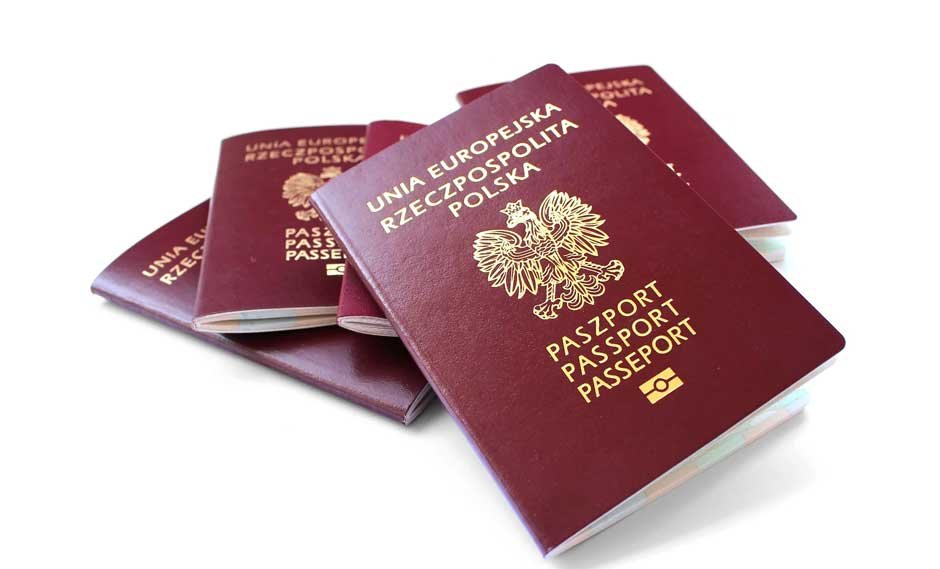Skip to the good bit
ToggleApplying for Polish citizenship can be a demanding process. Whether you are applying for citizenship by descent, naturalisation or marriage, understanding the paperwork required is crucial. The relevant documents not only serve as proof of eligibility, but also help ensure a smooth processing of your application. In this article, we will discuss the key types of documents required to apply for Polish citizenship, their importance and tips for navigating this complicated process.
Why Documentation is Critical in Polish Citizenship Applications
In any process of granting citizenship, documents are important evidence of eligibility. In the case of Polish citizenship, this is extremely important due to specific historical, legal and genealogical factors. The Polish legal system follows the principle of ‘ius sanguinis’ (law of the blood), which means that citizenship is primarily inherited through Polish ancestors. However, documentation requirements go beyond proof of descent and often include legal identity, place of residence and other documents.
The Polish government maintains strict standards for applications, and missing or incomplete documents can lead to delays or rejection. Preparing comprehensive and accurate files is key to success.
Key Types of Documents for Polish Citizenship Applications
To apply for Polish citizenship, it is necessary to collect a set of documents. We have grouped them below in an appropriate way so that you can check whether you have them all.
- Proof of Identity and Civil Status
The foundation of any citizenship application is proving who you are. You will need:
- A valid passport or government-issued ID.
- Birth certificates for yourself and, in some cases, for your parents and grandparents to establish lineage.
- Marriage certificates, if applicable, to document changes in surname or familial connections.
These documents must be official, certified, and translated into Polish by a sworn translator if issued in another language.
- Ancestral Records
When claiming citizenship by descent, ancestral documents are the basis of the application. These documents provide evidence of the family’s connections to Poland and may consist of:
- Polish birth or baptismal records.
- Marriage records of your ancestors.
- Old Polish passports, identity cards, or military service documents.
- Evidence of residency or property ownership in Poland.
Considering Poland’s complicated history, especially in the 20th century, ancestral records may be distributed across different archives or countries. Researching these records often involves looking into parish registers, immigration archives and even Holocaust documentation in cases where families were displaced.
- Proof of Polish Citizenship
If your ancestors were Polish citizens, you may need documents clearly confirming this status. Such documents may be:
- Citizenship certificates.
- Old legal declarations or court rulings affirming Polish citizenship.
- Documentation proving they did not lose their citizenship, especially during emigration or after naturalization in another country.
- Residency and Legal Stay in Poland
For those seeking citizenship through naturalization, proving residency in Poland is essential. Documents you might need include:
- A valid residence permit.
- Proof of continuous stay in Poland (e.g., utility bills, lease agreements, or bank statements).
- Work or study permits if applicable.
Residency requirements typically vary depending on the type of application. For example, marriage to a Polish citizen often shortens the required duration of residency.
- Language Proficiency Certification
Polish citizenship often requires demonstrating knowledge of the Polish language. Applicants must provide certification, such as passing the Polish language exam at the B1 level or higher. This requirement reflects the emphasis on integration into Polish society.
- Application Forms and Fees
The final set of documents includes the completed application form and proof of payment of administrative fees. Polish authorities typically provide detailed guidelines on filling out the forms, but ensuring accuracy is crucial.
Navigating Common Challenges in Document Preparation
Many people applying for citizenship by descent encounter difficulties in finding ancestral documents. However, Polish archives are fortunately well organised and can be a valuable source of information. If you have difficulties, it may be helpful to contact the National Archives or local parishes.
Another challenge may be translation and legalisation. This is because documents issued in another language need to be translated into Polish by a sworn translator. In addition, some documents may require legalisation in the form of an apostille.
Finally, it is worth taking a moment to fill in the gaps in the documentation. Sometimes there is a lack of continuity in documents, e.g. marriage or birth certificates of ancestors. In such cases, additional evidence such as photographs, letters or other family heirlooms prove useful.
The Value of Polish Citizenship
Polish citizenship offers many benefits, including the right to live, work, and study in Poland and across the European Union. It also provides access to a rich cultural heritage and the opportunity to reconnect with ancestral roots. Although the polish passport application process may seem daunting, the benefits of obtaining Polish citizenship often significantly outweigh the effort involved.







